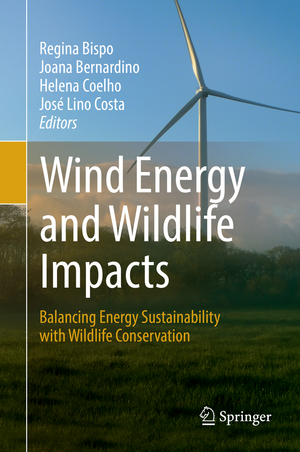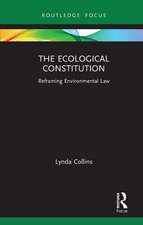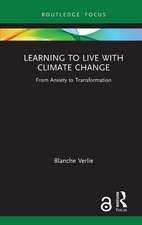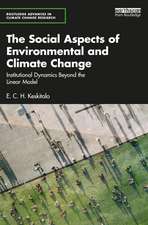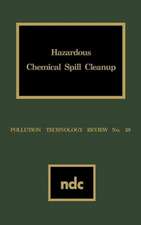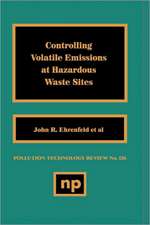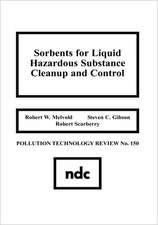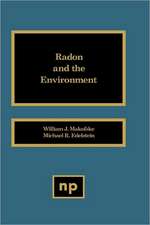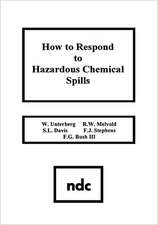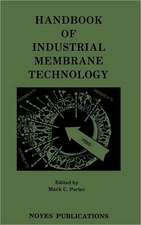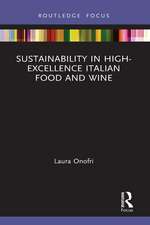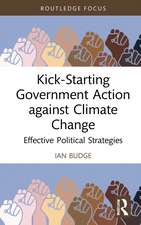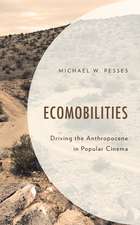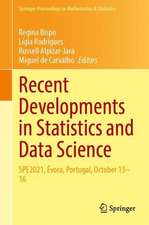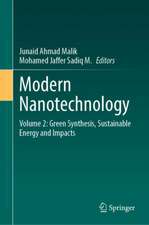Wind Energy and Wildlife Impacts: Balancing Energy Sustainability with Wildlife Conservation
Editat de Regina Bispo, Joana Bernardino, Helena Coelho, José Lino Costaen Limba Engleză Hardback – 2 apr 2019
The book comprises a selection of the best contributions presented at the 4th Conference on Wind energy and Wildlife impacts, held in Estoril, Portugal, 2017. The contents promote the international cooperation among researchers, developers, regulators and stakeholders that have contributed to building knowledge on this topic.
Preț: 782.42 lei
Preț vechi: 954.17 lei
-18% Nou
Puncte Express: 1174
Preț estimativ în valută:
149.74€ • 155.75$ • 123.61£
149.74€ • 155.75$ • 123.61£
Carte disponibilă
Livrare economică 22 martie-05 aprilie
Preluare comenzi: 021 569.72.76
Specificații
ISBN-13: 9783030055196
ISBN-10: 3030055191
Pagini: 226
Ilustrații: XIII, 222 p. 52 illus., 27 illus. in color.
Dimensiuni: 155 x 235 mm
Greutate: 0.45 kg
Ediția:1st ed. 2019
Editura: Springer International Publishing
Colecția Springer
Locul publicării:Cham, Switzerland
ISBN-10: 3030055191
Pagini: 226
Ilustrații: XIII, 222 p. 52 illus., 27 illus. in color.
Dimensiuni: 155 x 235 mm
Greutate: 0.45 kg
Ediția:1st ed. 2019
Editura: Springer International Publishing
Colecția Springer
Locul publicării:Cham, Switzerland
Cuprins
Chapter 1. The Role of Adaptive Management in the Wind Energy Industry (Andrea Copping, Victoria Gartman, Roel May and Finlay Bennet).- Chapter 2. Wildlife Mortality at Wind Facilities: How We Know What We Know, How We Might Mislead Ourselves and How We Set Our Future Course (Manuela Huso).- Chapter 3. Avoidance Behaviour of Migrating Raptors Approaching an Offshore Windfarm (Erik M. Jacobsen Flemming P. Jensen and Jan Blew).- Chapter 4. Estimating Potential Costs of Cumulative Barrier Effects on Migrating Raptors: A Case Study using Global Positioning System Tracking in Japan (Dale M. Kikuchi, Toru Nakahara, Wataru Kitamura and Noriyuki M. Yamaguchi).- Chapter 5. A Pioneer in Transition: Horizon Scanning of Emerging Issues in Germany’s Sustainable Wind Energy Development (Johann Köppel, Juliane Biehl, Volker Wachendörfer and Alexander Bittner).- Chapter 6. The Mitigation of Impact and the Impact of Mitigation: An Ethical Perspective (Roel May).- Chapter 7. The First Large Scale Offshore Aerial Survey Using A High Resolution Camera System (Stephanie McGovern, Julia Robinson Wilmott, Gregory Lampman, Ann Pembroke, Simon Warford, Mark Rehfisch and Stuart Clough).- Chapter 8. Wind Farm Effects on Migratory Flight of Swans and Foraging Distribution at Their Stopover Site (Sachiko Moriguchi, Haruka Mukai, Ryosuke Komachi and Tsuneo Sekijima).- Chapter 9. Automatic Bird Identification for Offshore Wind Farms (Juha Niemi and Juha T. Tanttu).- Chapter 10. Towards an Ecosystem Approach to Assess the Impacts of Marine Renewable Energy (Jean-Philippe Pezy, Aurore Raoux, Nathalie Niquil and Jean-Claude Dauvin).- Chapter 11. Camera-trapping versus Conventional Methodology in the Assessment of Carcass Persistence for Fatality Estimation at Wind Farms (Luís Rosa, Tiago Neves, Diana Vieira and Miguel Mascarenhas).- Chapter 12. Lost in Bias? Multifaceted Discourses Framing the Communication of Wind and Wildlife Research Results – the PROGRESS Case (Jessica Weber, Juliane Biehl and Johann Köppel).- Chapter 13. Estimating the Potential Mortality of Griffon Vultures (Gyps fulvus) Due to Wind Energy Development on the Island of Crete (Greece) (Stavros M. Xirouchakis, Efi Armeni, Stamatina Nikolopoulou and John Halley).
Notă biografică
Regina Bispo holds a Licentiateship in Agronomical Engineering, a M.Sc. in Probability and Statistics (FCUL) and a Ph.D. in Statistics (University of Lisbon). She is an Assistant Professor at Faculty of Sciences and Technology of NOVA University of Lisbon, and has taught statistics for the last 20 years in university level courses including Mathematics, Statistics, Pharmacy, Biology and Engineering. RB is a senior researcher at Centre for Mathematics and Applications (CMA) and a collaborator at the the Marine and Environmental Sciences Centre (MARE). Her research focus on Environmental Impact Assessment and Monitoring, namely fatality assessment in windfarms and also on Climate Change issues. She has published over 30 articles in peer-reviewed publications, has 3 book chapters and 1 book published.
Joana Bernardino is a wildlife biologist with a special interest on biodiversity management and impact assessment. Sheholds a M.Sc. in Ecology and Environmental Management from the University of Lisbon, and over the last decade, participated in several Environmental Impact Assessments and Monitoring Programmes of renewable energy projects. Currently, Joana is a researcher in CIBIO/InBIO and is pursuing her Ph.D. in Biodiversity, Genetics and Evolution. Her main research interest is the development of methodologies to assess and mitigate wildlife fatality at wind farms and other human made infrastructures, such as power lines and roads. Since 2014, Joana is also a member of EUROBATS Intersessional Working Group on “Wind Turbines and Bat Populations”.
Helena Coelho is a biologist at Bioinsight and she is focused on the development of the best innovative solutions that allow the development of economic activities, such as wind energy, and biodiversity conservation. She holds a Ph.D. in Biology and a B.Sc. in Science Coastal Zone. Over the last decade Helena has participated inthe development and coordination of R&D projects related to Biodiversity, Environmental Monitoring Studies, Environmental Impact Assessment, Post Assessment, Land Use, Biodiversity Management and Ecosystem Services Valuation.
José Lino Costa holds a Licentiateship in Fauna Resources and Environment (Biology) and a PhD in Ecology and Biosystematics (Biology). He is an Assistant Professor at the Faculty of Sciences of the University of Lisbon (FCUL) and Vice-director of the Marine and Environmental Sciences Centre (MARE). Lino has conducted his teaching activity in several Portuguese and Angolan universities, including disciplines in the areas of Impact Assessment and Environmental Monitoring. Its research activity includes Ecological Monitoring and Natural Resources and Environment Planning studies. He is the author or co-author of 4 books, 5 book chapters and more than 80 articles in international journals. Has presented more than 250 communications in scientific meetings.
Joana Bernardino is a wildlife biologist with a special interest on biodiversity management and impact assessment. Sheholds a M.Sc. in Ecology and Environmental Management from the University of Lisbon, and over the last decade, participated in several Environmental Impact Assessments and Monitoring Programmes of renewable energy projects. Currently, Joana is a researcher in CIBIO/InBIO and is pursuing her Ph.D. in Biodiversity, Genetics and Evolution. Her main research interest is the development of methodologies to assess and mitigate wildlife fatality at wind farms and other human made infrastructures, such as power lines and roads. Since 2014, Joana is also a member of EUROBATS Intersessional Working Group on “Wind Turbines and Bat Populations”.
Helena Coelho is a biologist at Bioinsight and she is focused on the development of the best innovative solutions that allow the development of economic activities, such as wind energy, and biodiversity conservation. She holds a Ph.D. in Biology and a B.Sc. in Science Coastal Zone. Over the last decade Helena has participated inthe development and coordination of R&D projects related to Biodiversity, Environmental Monitoring Studies, Environmental Impact Assessment, Post Assessment, Land Use, Biodiversity Management and Ecosystem Services Valuation.
José Lino Costa holds a Licentiateship in Fauna Resources and Environment (Biology) and a PhD in Ecology and Biosystematics (Biology). He is an Assistant Professor at the Faculty of Sciences of the University of Lisbon (FCUL) and Vice-director of the Marine and Environmental Sciences Centre (MARE). Lino has conducted his teaching activity in several Portuguese and Angolan universities, including disciplines in the areas of Impact Assessment and Environmental Monitoring. Its research activity includes Ecological Monitoring and Natural Resources and Environment Planning studies. He is the author or co-author of 4 books, 5 book chapters and more than 80 articles in international journals. Has presented more than 250 communications in scientific meetings.
Textul de pe ultima copertă
This book provides a state-of-art overview of the significant advances in understanding the impacts of wind energy on wildlife. However, many challenges remain regarding planning and policy, assessment of direct and indirect effects on wildlife, methodological approaches, technology development, and mitigation strategies and their effectiveness.
The book comprises a selection of the best contributions presented at the 4th Conference on Wind energy and Wildlife impacts, held in Estoril, Portugal, 2017. The contents promote the international cooperation among researchers, developers, regulators and stakeholders that have contributed to building knowledge on this topic.
The book comprises a selection of the best contributions presented at the 4th Conference on Wind energy and Wildlife impacts, held in Estoril, Portugal, 2017. The contents promote the international cooperation among researchers, developers, regulators and stakeholders that have contributed to building knowledge on this topic.
Caracteristici
Provides the most recent developments in impact assessment of wind energy production on wildlife Includes international contributions and case studies Gives up-to-date views from expert researchers, developers, regulators and stakeholders
